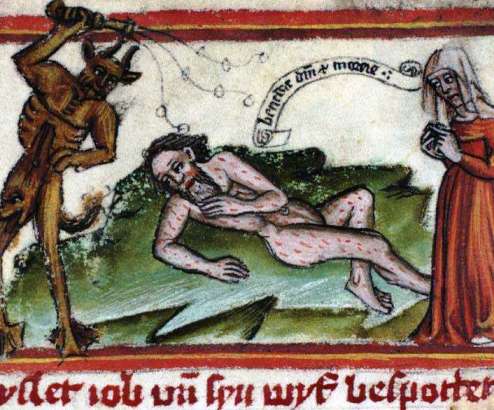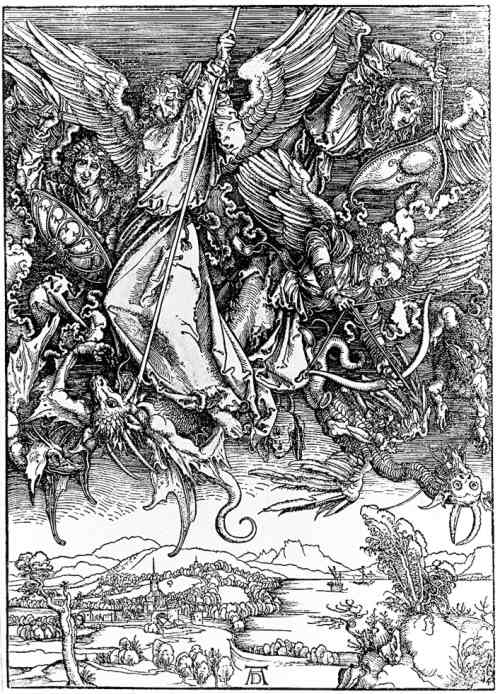 |
| Satan's Coffee |
The story goes like this:
God made humanity to rule the earth and required that all the angels of heaven bow to Man to recognize his rule over the angels. All the angels obeyed except for Iblis (Satan) who claimed that his nature was superior to humanity, as created from fire instead of clay. God then rebuked Satan, and proclaimed his ultimate judgment, but God would withhold such judgment until a later time. Iblis then responded, "Give me some time to prove the inadequate nature of humanity. I will prove them to be weak and unworthy of ruling Your creation." God agreed that Iblis had the right to prove his case. He said, "Hell is fitting for your, for your disobedience. But all those humans who follow you and your ways I will put them in hell as well."
This isn't the story of Satan told by the Bible, but it fits.
 |
| Book of Job |
The Bible's story of Satan shows that Satan was humanity's enemy from the beginning, being the trigger for Adam and Eve's downfall. Satan is "the god of this world" and most of humanity follows Satan through pagan ritual. But Satan can approach God, condemning and accusing certain humans, especially those who are pleasing to God. Satan tempts them and tries to get them to fall away from God, causing God to be forced to judge those who are pleasing to Him.
Christian theology of Satan is pretty different from the Quran, but it is different from the Bible as well.
Christian theology claims that Satan was the greatest of angels, but he rebelled against God, taking up arms against Him. God defeated Satan with his hosts, but Satan and half of his angels fell from heaven and were declared unworthy of God. This was supposed to happen at the beginning of the world, before humanity was created. But if this is the case, then how is Satan in the garden and in the presence of God after humanity is created?
The problem comes in the interpretation of Revelation 12, which describes the war between Michael and Satan. A close reading of that passage in the context of Revelation indicates that it takes place after the ascension of Jesus. This really changes how one sees Satan working in the world.
Some say that Satan is an extension of Zoroastrianism, where there are two equal beings at war with each other. However, a careful read of the Bible shows that the theology of Satan comes from pagan sources, where Satan is the equivalent of Zeus, Baal and Marduk, who declares himself ruler after fighting against his father, El, the creator of earth and humanity. "Satan" is not a name, but a title which means "accuser". "Devil" is also not a name, but is an insult "the devil". "Beelzebub" is also an insult, "lord of the flies" which comes from a specific name for Baal, the Canaanite high god.
The theology of Satan is not a theological necessity to place blame for evil on someone else. Rather, it is to put pagan theology in its place. To say that there is only one Most High God and that is the Creator. You might call Zeus and Baal god, but they are nothing compared to Yahweh, the Lord of all the universe, including your so called gods.

No comments:
Post a Comment